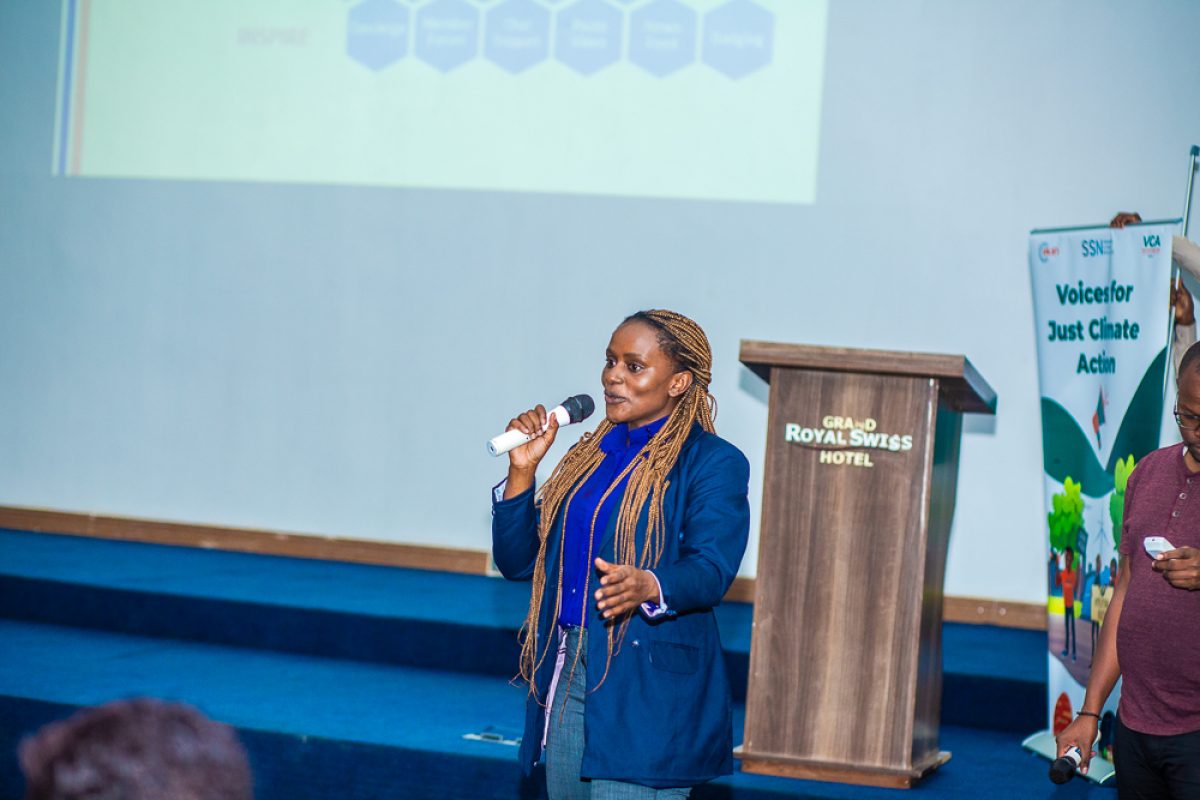Women Leading Kenya’s Renewable Energy Revolution

Women Leading Kenya’s Renewable Energy Revolution
As the global push for clean, renewable energy intensifies, Kenya has emerged as a leader in Africa’s renewable energy transition. With over 80% of its electricity generated from renewable sources, including geothermal, wind, and solar, Kenya is setting a precedent for sustainable development. However, achieving true energy inclusivity requires bridging gender gaps in access, participation, and leadership within the renewable energy sector. Women’s Empowerment Link (WEL) is at the forefront of ensuring women are not left behind as Kenya embraces a clean energy future.
The Gender Divide in Renewable Energy
Despite playing critical roles in energy consumption—particularly in cooking, lighting, and heating—women remain underrepresented in the energy sector. Traditionally, women and girls in rural areas have relied on biomass fuels like firewood and charcoal for cooking, which not only harms their health but also contributes to environmental degradation. Access to cleaner energy alternatives, such as solar-powered stoves or biogas systems, remains limited due to financial barriers, lack of awareness, and entrenched gender norms.
At the same time, women’s participation in decision-making, policy formulation, and leadership within the energy sector is disproportionately low. A lack of opportunities, technical skills, and mentorship further widens the gender gap. This exclusion undermines efforts to implement equitable, community-driven renewable energy solutions.
Empowering Women Through Clean Energy Solutions
Recognizing the potential for women to drive transformative change, WEL has prioritized programs that integrate gender equity into Kenya’s renewable energy revolution. By empowering women with skills, resources, and leadership opportunities, WEL is fostering an inclusive energy ecosystem where women are active contributors and beneficiaries.
Some of the key interventions include:
- Training Women in Renewable Energy Technologies
WEL provides practical training on renewable energy solutions, including solar panel installation, maintenance of biogas systems, and energy-efficient technologies. These programs equip women with technical skills to access employment opportunities in a male-dominated sector while enabling them to bring clean energy solutions to their communities. - Women-Led Clean Energy Enterprises
WEL supports women entrepreneurs to establish clean energy businesses, such as solar lantern distribution and biogas cooking solutions. Access to affordable financing and mentorship enables women to overcome economic barriers and thrive as clean energy advocates and providers. By connecting women to microfinancing opportunities and cooperatives, WEL ensures sustainable income generation while advancing renewable energy adoption. - Promoting Energy Literacy
Education is a cornerstone of WEL’s advocacy. Through community workshops and partnerships with local leaders, WEL raises awareness about the benefits of renewable energy, including cost savings, improved health outcomes, and environmental conservation. By promoting energy literacy, WEL empowers women to make informed choices for themselves and their families.
Women as Champions of Energy Access
Women’s involvement in renewable energy is not just about inclusion; it’s about leveraging their unique insights to drive change. Women are often the primary energy managers at the household level, making them well-placed to champion clean energy solutions that address real-life challenges. Across Kenya, success stories highlight the transformative power of women-led initiatives.
For instance, in rural communities where WEL has partnered with women’s groups, solar home systems have replaced kerosene lamps, reducing household costs and improving indoor air quality. Women entrepreneurs have also reported increased incomes from selling solar lighting products, enabling them to invest in their children’s education and other needs.
Through these initiatives, women are proving to be the linchpins of Kenya’s clean energy revolution—leaders who innovate, inspire, and uplift their communities.
Closing the Policy and Participation Gap
While significant strides have been made, barriers to women’s participation in the renewable energy sector remain. WEL is advocating for policies that ensure gender-sensitive planning, budgeting, and implementation of energy programs. Specifically, WEL pushes for:
- Increased representation of women in energy governance and decision-making bodies.
- Access to education and technical training for girls and women to bridge skills gaps in STEM and energy fields.
- Financial inclusion to support women entrepreneurs and communities in adopting clean energy technologies.
By engaging policymakers, WEL ensures that women’s perspectives and needs are embedded in Kenya’s clean energy agenda.
A Renewable Energy Future Led by Women
Kenya’s renewable energy journey presents a unique opportunity to break longstanding gender barriers while fostering sustainability. Women are not just beneficiaries of clean energy solutions; they are leaders, innovators, and change agents capable of transforming communities and driving economic growth.
Through its efforts, WEL continues to demonstrate that empowering women is key to achieving Kenya’s energy goals. A future where women have equal access, opportunities, and leadership in the energy sector is a future where Kenya thrives—economically, socially, and environmentally.
Kenya’s renewable energy revolution is more than a technological transformation—it’s a call to action for gender equality. By investing in women, Kenya is not only addressing energy poverty but also building a resilient, inclusive, and sustainable future for all.
Tel: +254 711 907 132
Tel: +254 732 574 060
Nakuru
Tel: +254 704 746 374
HomaBay
Tel: +254 742 234 446
